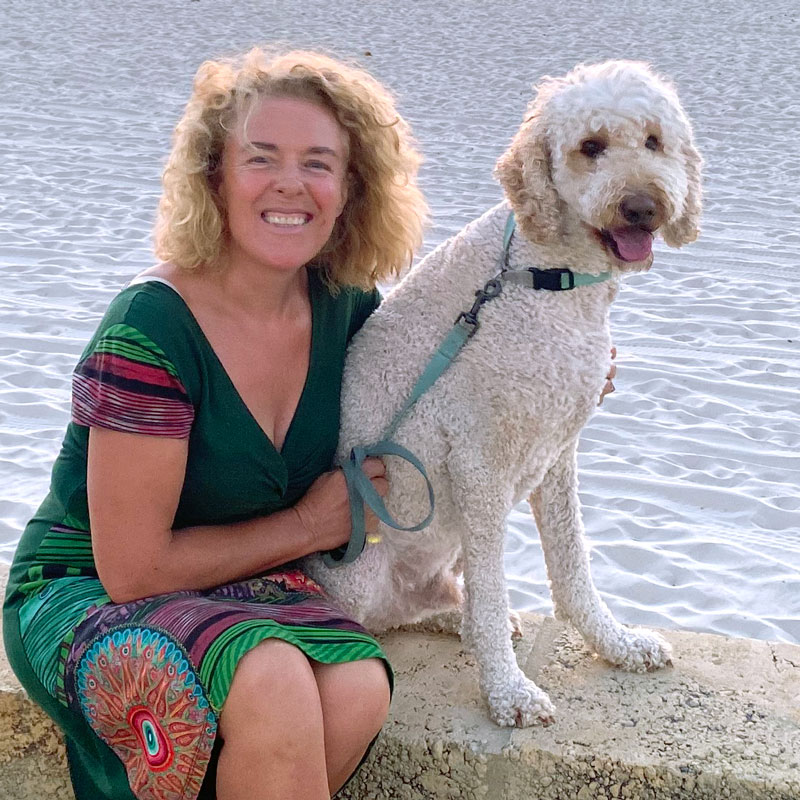I remember a particular experience I had a couple of years ago at the end of a yoga class when we were lying down in Savasana pose. Out of nowhere, I felt tears rolling down my face, dropping onto the floor beneath my head, while a heavy sense of foreboding took hold in my chest and throat. I had just completed 90 minutes of hard yoga that required my full attention. I was physically calm after pushing and stretching my body to its limit. Yet, at a subconscious level, my mind was in a state of unrest. Something was bothering me at a deep level and I knew exactly what it was. But was I ready to face it?
The Guilt of The Hangover
I always felt guilty when I entered the yoga studio on a Saturday morning with a hangover. When other attendees talked about their Friday night out on the town, I would quickly compartmentalise my guilt as though it was wholly unnecessary. For we live in a society where heavy drinking is not uncommon and even encouraged in some cases. I found it easy to justify shutting up my inner voice and continuing on with my regular, heavy drinking. My inner voice had grown so used to being shut up that it got quieter and quieter and so, it was only after the peace that followed a 90-minute yoga session that I was able to hear it again. Eventually I stopped going to yoga because I didn’t like what that voice was trying to tell me. I issued a gagging order against it so that I could continue to drink with impunity.
Hitting rock-bottom
Drinking became more important to me than yoga, meditation, healthy eating, relationships, writing and dreaming. Over time, I needed more alcohol to make me feel good which impacted on my overall health. The more I drank, the worse I felt. So, I drank some more to make me feel better. I was caught in the suffocating cycle of addiction. While I was fortunate enough not to have the need to drink in the day time, I spent much of the time fighting with myself about whether or not I would drink that night. I found Mondays easy as my body was begging for a break after the abuse it suffered during the weekend. By Tuesday, though, I was back in the headfuck of ‘will I?’ or ‘won’t I?’. More often than not, the withdrawal symptoms of irritability and crankiness would get in the way of any commitment I’d made not to drink, and I would conclude that it was for the best that I poured myself a large one. I would then suffer the consequential fallout of guilt and self-deprecation that followed – ‘how bloody weak-willed of me’, ‘what a loser’ etc. And so, it went on, and on and on. Until I came face to face with my own version of rock-bottom. Some people wake up in hospital after a serious accident, others find themselves sitting in their GP’s office being diagnosed with advanced liver disease. For me, it was coming face to face with the nastiness that alcohol brought out in me. One night I treated somebody badly after drinking close to two bottles of wine, causing a lot of upset to the person on the receiving end and to my hungover, sober self the next day, once I’d realised what I’d said and done.
The wall of stone
My addiction was responsible for the construction of a stone wall around my heart that stopped me from being the kind, caring person I know myself to be now. When I was in the throes of my addiction, I believed that I was a bad person and I had to drink in order to numb the pain of that truth. That wall stopped me from connecting with others on a deep and meaningful level. This explains why they say that the opposite of addiction is connection. I had become an addict through my desire to escape the anxiety of living with the pain of my past. I hadn’t learnt healthy coping strategies that everybody needs in order to deal with life’s challenges. Because I didn’t know any better, I mistakenly chose a destructive way to ease the pain.
The awakening
Now in hindsight, the rude awakening I had the morning after my outburst was the catalyst for my transformation. I feel liberated since I stopped drinking on May 13th, 2019. I feel grateful for the courage that has allowed me to learn about myself during this time. I have made huge strides in my personal growth and am finally able to accept and live with my imperfections but am equally honest about my strengths. Sobriety has given me permission to be OK as I am, and through this process I have become the truly, madly, deeply caring and creative person I always was before addiction stole my physical, mental and spiritual health from me. Sobriety also gives me an incredible strength in knowing that I am tackling an issue that is difficult to tackle because of the way our society promotes alcohol consumption. As Dr Brené Brown so aptly states in her interviews; ‘Sobriety is my superpower’. I relate to this. I feel I can tackle anything now and I won’t be fazed.
Addiction is a disease of the brain
In more recent weeks, I’ve started to really explore the topic of addiction. I have done a lot of reading, have listened to many podcasts, watched videos and talked to people in my support group. What is clear to me is that addiction is a problem of brain function. There have been reams written about this and advancements in neurobiological research backs up much of it. We don’t actually become addicted to the substance itself, we become addicted to the chemicals our brain releases when we think about the substance and consume it. This fact is proven by the example of people who are addicted to gambling. The same chemistry happens in their brain as it does in the brain of a heroin addict. I believe that certain people are pre-disposed to addictive behaviours and I believe that traumatic experiences can also trigger addiction.
Seeking treatment
If we can accept that addiction is a chronic disease of the brain, then we can also accept that, like other diseases, it can respond to treatment and can be cured in many cases.
My treatment entailed counselling. If it weren’t for the amazing support of a clinical psychologist first and then, being part of a support group that was guided by qualified counsellors in drug and alcohol rehabilitation services, I would have found the journey massively more difficult. I needed help to see how my thinking was at the root of why I was trapped in addiction. By believing that comfort was to be found at the bottom of a glass, I was training my brain to rely on the contents of that glass to get its reward and to release the chemicals I needed to feel good. The longer this mindset continued, the more addicted I became and the harder it was to ever believe I could stop.
Letting nature do its work
In the end, I chose recovery over addiction. I chose counselling and therapy to help me to treat my disease in the same way a person chooses chemotherapy to treat their cancer. I am pleased to say that my disease is in remission after 18 months of treatment. I continue to monitor my mind for any signs that I might ever think that alcohol or drugs are a solution to life’s challenges again. Because I know that they are not. I have learnt that once I allowed my body to restore its natural chemical balance without the influence of a toxic substance, and without my mind tricking it into needing a substance to function, it came through for me. I have regained a sense of well-being from loving relationships, good quality sleep, a healthy diet, revisiting my creativity and lots of exercise including yoga and meditation. The walls that hid my heart away from the world have slowly crumbled and the love I feel now is immense. I have learnt to forgive myself and others and I am hugely grateful for everything this journey has taught me. It’s hard to believe that 18 months ago I felt I was living my life in the cold, dark shadow of a humongous mountain that I knew I had to climb, in my bare feet, if I was to reach the light and the warmth. Looking back now, I can see clearly that it was change itself that scared me more than anything else. Once I had accepted that change was necessary for growth and my life was worth it, the climb was way easier than I ever anticipated. It wasn’t without its challenges of course but nothing as bad as I ever imagined. I met some amazing people on the way up who opened their hearts to me and shared their inspiring stories which made a big difference to my journey. There is nothing like connection to aid the healing process.
Reach out
I’m at the summit now where the view is sublime, and I can see for miles and miles. I have placed a flag there for anyone else who finds themselves at the bottom so that you can see that the summit is reachable, and with the right support, you will get there and place your own flag. You’ve got to believe that you are worth it and that a better life awaits you. Thanks for taking the time to be here with me today. If you know someone battling with addiction right now, please reach out to them and encourage them to believe that they can overcome it. Nobody chooses to live a life filled with the misery of addiction, just like nobody chooses to be sick. But with the right support, we can all learn to see that we have the power to choose recovery.
Cropped photo by Tobias Bjorkli

